
The Enchanting Casbah of Algiers: A Step Back in Time
The Casbah of Algiers, also known as Al-Qasbah, is a labyrinth of narrow streets, ancient mosques, and historic buildings that date back to the Ottoman era. This UNESCO World Heritage site offers a glimpse into the rich history and culture of Algeria, with its maze-like alleys and whitewashed houses that cascade down the hillside towards the Mediterranean Sea. As you wander through the Casbah, you'll encounter bustling markets where locals sell everything from traditional crafts to aromatic spices. The vibrant atmosphere is complemented by the sounds of street musicians and the calls to prayer emanating from the mosques. Don't miss the iconic Ketchaoua Mosque, a stunning blend of Moorish and Byzantine architecture that stands as a testament to the area's diverse cultural influences. The Casbah is not just a historical relic; it's a living, breathing neighborhood where residents continue to uphold traditions that have been passed down through generations. Take the time to visit the Dar Hassan Pacha, a beautifully preserved Ottoman palace, or explore the ruins of the ancient citadel that overlooks the city. Whether you're a history buff, a culture enthusiast, or simply looking for an authentic experience, the Casbah of Algiers promises to be a memorable destination.
Local tips in Casbah
- Wear comfortable shoes as the narrow, cobbled streets can be challenging to navigate.
- Visit early in the morning to avoid crowds and experience the Casbah at its most serene.
- Hire a local guide to uncover hidden gems and learn about the intricate history of the area.
- Respect local customs and dress modestly, especially when visiting religious sites.
- Bring cash, as many local vendors do not accept credit cards.
The Enchanting Casbah of Algiers: A Step Back in Time
The Casbah of Algiers, also known as Al-Qasbah, is a labyrinth of narrow streets, ancient mosques, and historic buildings that date back to the Ottoman era. This UNESCO World Heritage site offers a glimpse into the rich history and culture of Algeria, with its maze-like alleys and whitewashed houses that cascade down the hillside towards the Mediterranean Sea. As you wander through the Casbah, you'll encounter bustling markets where locals sell everything from traditional crafts to aromatic spices. The vibrant atmosphere is complemented by the sounds of street musicians and the calls to prayer emanating from the mosques. Don't miss the iconic Ketchaoua Mosque, a stunning blend of Moorish and Byzantine architecture that stands as a testament to the area's diverse cultural influences. The Casbah is not just a historical relic; it's a living, breathing neighborhood where residents continue to uphold traditions that have been passed down through generations. Take the time to visit the Dar Hassan Pacha, a beautifully preserved Ottoman palace, or explore the ruins of the ancient citadel that overlooks the city. Whether you're a history buff, a culture enthusiast, or simply looking for an authentic experience, the Casbah of Algiers promises to be a memorable destination.
Iconic landmarks you can’t miss
Martyrs Memorial
A towering monument in Algiers commemorating Algeria's independence, offering panoramic views and a powerful reminder of the nation's history.

Martyrs' Square
Explore Martyrs' Square in Algiers: a vibrant hub of history, culture, and remembrance in the heart of the capital.
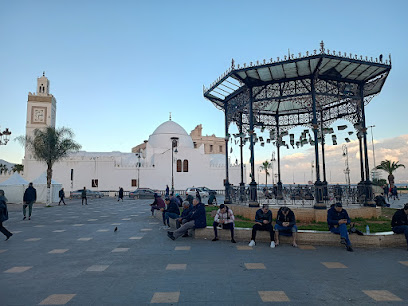
The new door
Discover the historic New Door in Algiers' Casbah, a UNESCO World Heritage site with rich architecture and cultural significance.
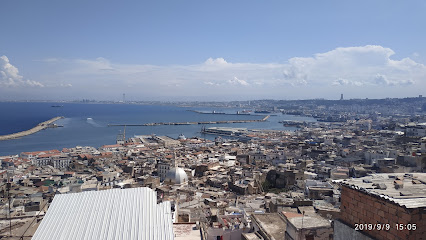
Palace of the Dey
Explore the Palace of the Dey in Algiers, a historic Ottoman-era landmark offering insights into Algeria's rich cultural and political past.
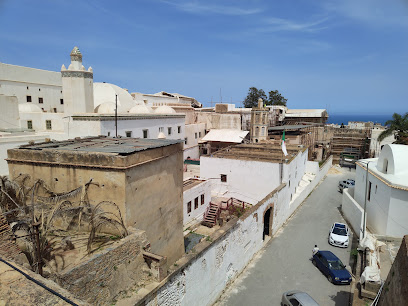
The old Kasbah
Discover the Kasbah of Algiers: a UNESCO World Heritage Site with rich history, stunning architecture, and vibrant culture in the heart of Algiers.
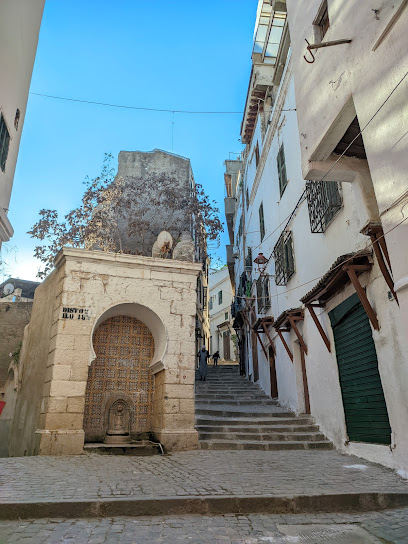
Casbah ville vue touristique
Explore the Casbah of Algiers, a UNESCO World Heritage Site, with its ancient streets, mosques, and palaces reflecting Algeria's rich history.
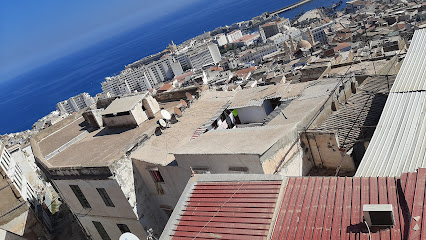
le balcon de la casbah d'Alger
Experience breathtaking panoramic views of Algiers and the Mediterranean from Le Balcon de la Casbah, a historic and scenic overlook.
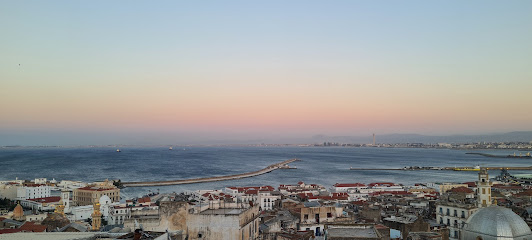
Enclosure wall of the Casbah
Explore the historic Enclosure Wall of the Casbah in Algiers, a UNESCO World Heritage site, and discover Algeria's rich Ottoman heritage and culture.
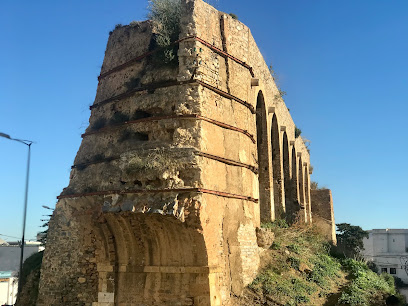
An archaeological excavation site
Uncover Algiers' past at this active archaeological site in the UNESCO-listed Casbah, revealing layers of Phoenician, Roman, and Ottoman history.
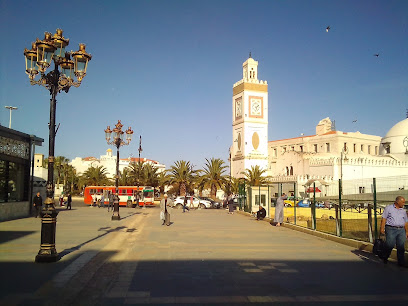
Quartier ottoman de la basse casbah
Discover the historical charm of Algiers' Quartier Ottoman de la Basse Casbah, a UNESCO World Heritage site with rich architecture and culture.
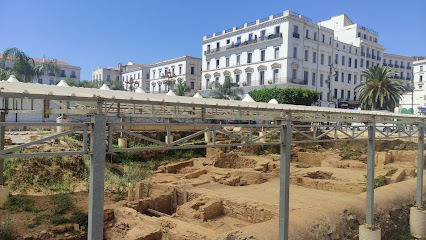
Unmissable attractions to see
Mosque of Algiers
Discover the grandeur of the Mosque of Algiers, a modern Islamic icon with the world's tallest minaret and stunning architectural design.
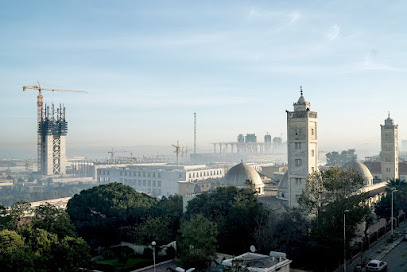
Church of Notre Dame of Africa
Discover Algiers' iconic basilica, a symbol of faith, art, and cultural harmony, offering panoramic views and a rich history.
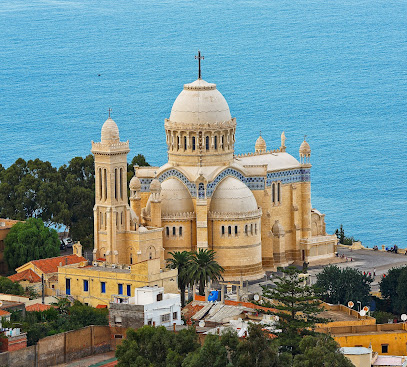
Sacred Heart Cathedral
Discover Algiers' Sacred Heart Cathedral: a stunning blend of modern architecture, faith, and history in the heart of the city.
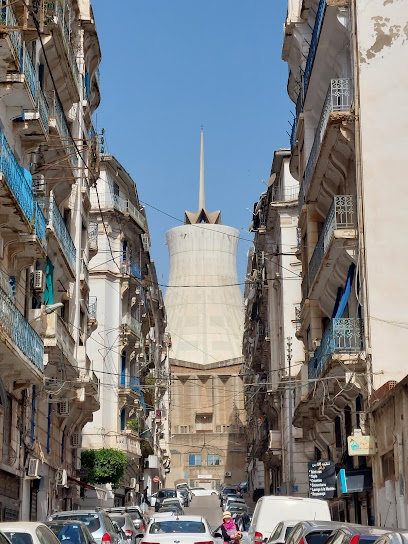
Casbah ville vue touristique
Explore the Casbah of Algiers: a UNESCO World Heritage Site with a rich history, stunning architecture, and vibrant culture.
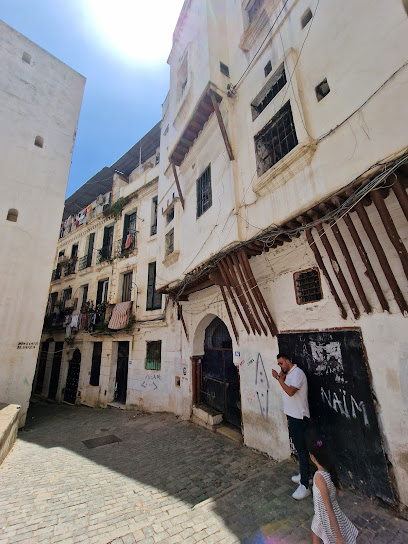
Dar al fen dz دار الفن
Discover traditional Algerian architecture and art in the heart of Algiers' historic Casbah. A cultural gem!
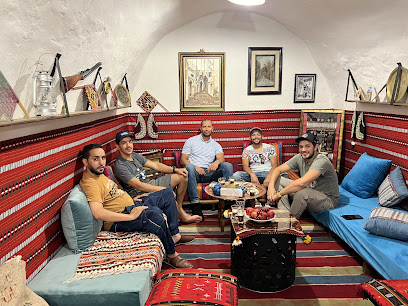
Essential places to dine
Le Bardo Restaurant مطعم الباردو
Experience authentic Algerian cuisine at Le Bardo Restaurant in Sidi M'Hamed – where every dish tells a story.
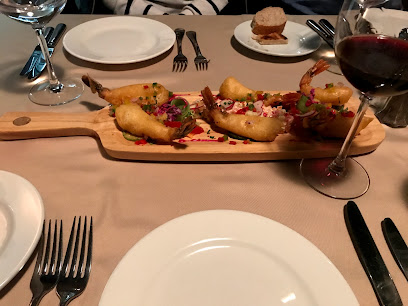
Le Repère
Discover authentic Algerian cuisine at Le Repère, nestled in the historic Casbah of Algiers - a culinary journey awaits!
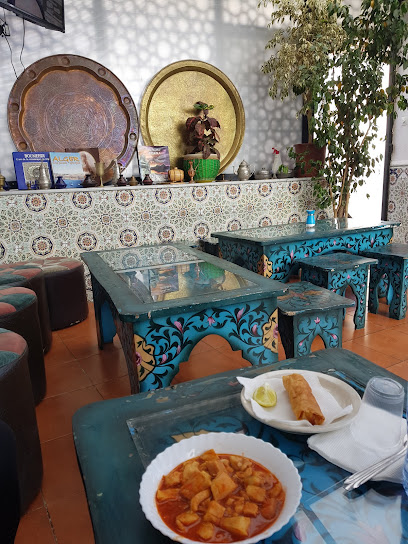
Dar Yemma Casbah
Discover authentic Algerian flavors at Dar Yemma Casbah, nestled in Algiers' historic Casbah district.
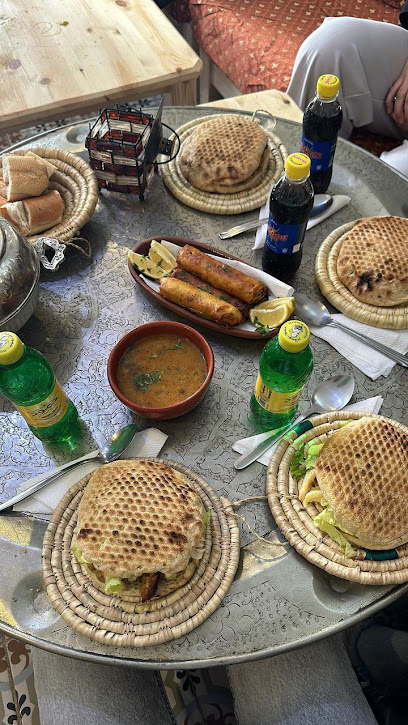
مطعم دار السلطان
Experience authentic Algerian cuisine at مطعم دار السلطان in the historic Casbah—where every dish tells a story.
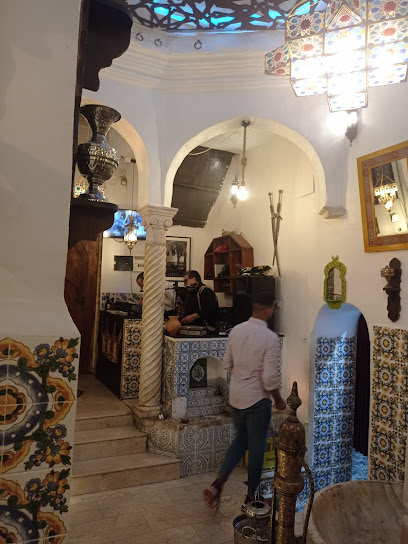
Restaurant Barberousse1947
Experience authentic Algerian cuisine at Restaurant Barberousse1947 in the enchanting Casbah of Algiers.
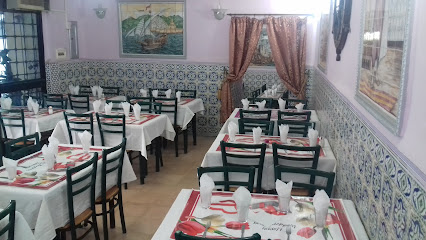
Dar el Chdjour
Experience authentic Algerian cuisine at Dar el Chdjour in Casbah, where history meets culinary delight in a charming setting.
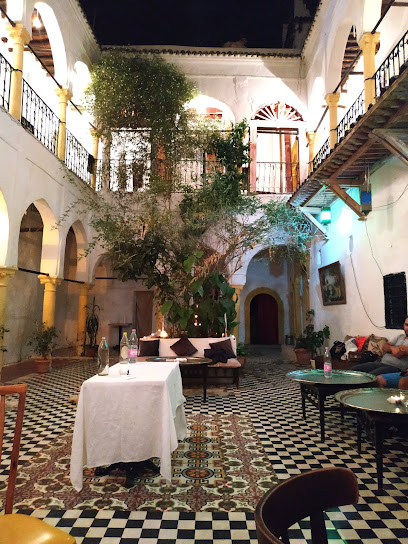
Restaurant le grand pécheur
Discover authentic Algerian flavors at Restaurant le Grand Pécheur in Casbah – a delightful culinary experience awaits you.
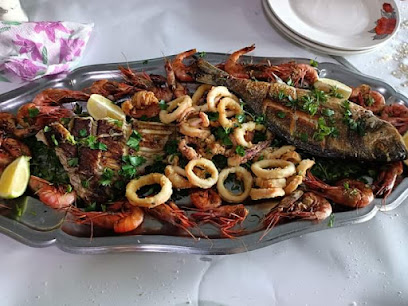
Restaurant El Nakhla
Experience authentic Algerian cuisine at Restaurant El Nakhla in Casbah - a delightful journey into local flavors and traditions.
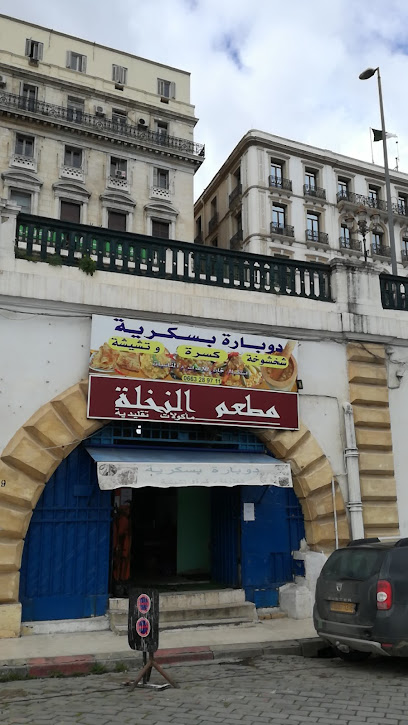
Restaurant Chez Zaki et Frères
Experience authentic Algerian cuisine at Restaurant Chez Zaki et Frères in Casbah - where tradition meets taste in every dish.
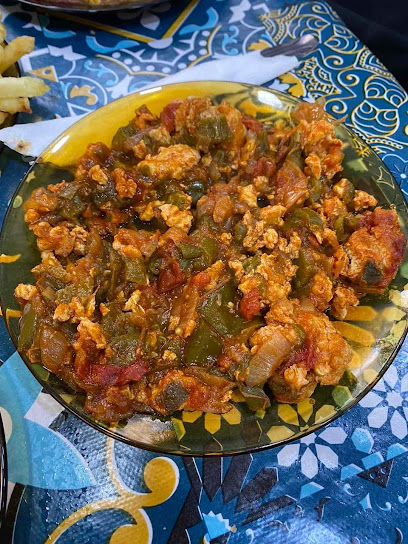
Restaurant El Salam
Discover authentic Algerian flavors at Restaurant El Salam in the historic Casbah of Algiers.
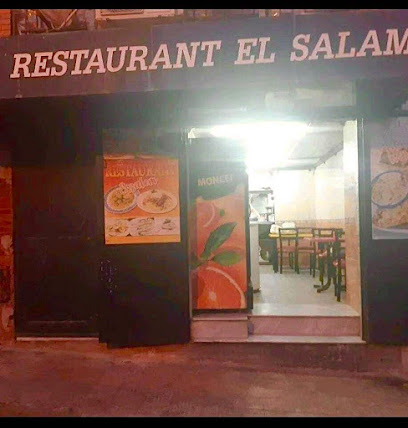
Markets, malls and hidden boutiques
Mersem amore e mentalita
Explore the heart of Algerian craftsmanship at Mersem Amore e Mentalita, a treasure trove of unique gifts and local artistry in the historic Casbah.
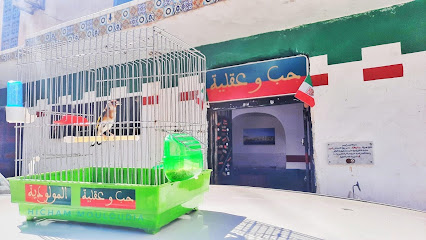
Handmade Art
Discover Handmade Art in Hydra, where unique Algerian crafts and home goods come alive, perfect for souvenirs or gifts.
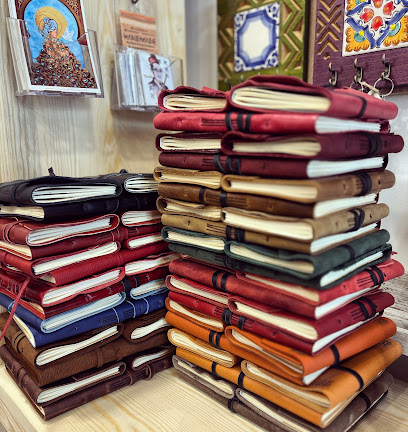
Relai Casbah
Discover the flavors of Algeria at Relai Casbah, a charming coffee shop in the heart of the historic Casbah, Algiers.
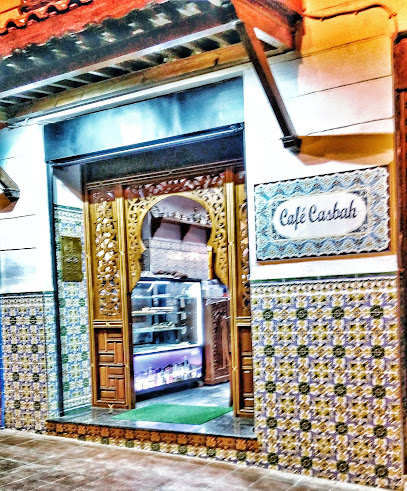
حسيبة
Explore the vibrant store حسيبة in Casbah, where culture meets craftsmanship, offering unique local treasures and authentic Algerian products.
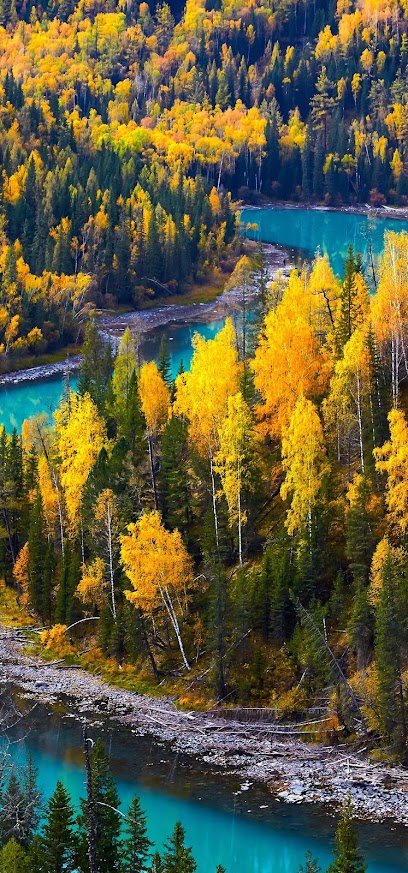
Linge De Maison Dz......index Kenzo
Discover the essence of Algerian craftsmanship at Linge De Maison Dz - Kenzo, a unique home goods store in the heart of the historic Casbah.

Casbah shop القصبة شوب
Explore the essence of Algerian beauty at Casbah Shop, a charming cosmetics store in the historic Casbah of Algiers.
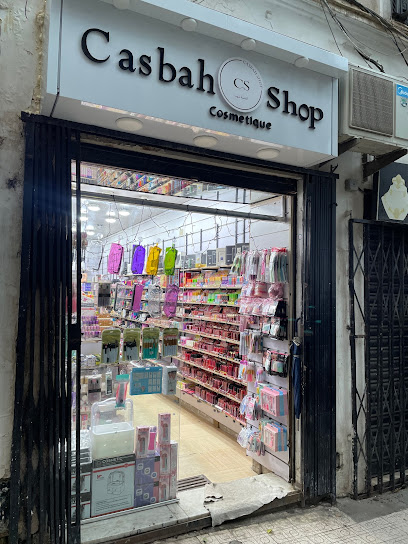
Casbahshop 2 القصبة شوب
Explore the vibrant Casbahshop 2 in Algiers for a unique blend of traditional and modern cosmetics reflecting the beauty of Algeria.
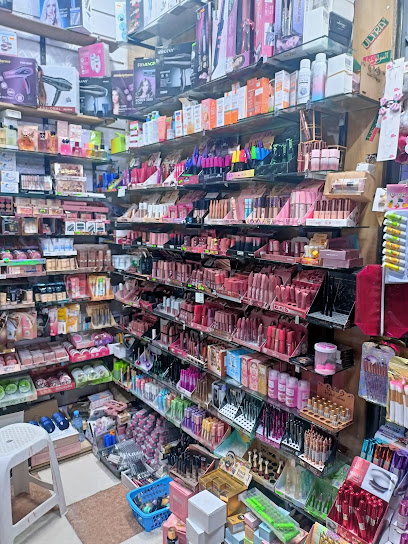
Boutique sofia
Explore Boutique Sofia, a premier women's clothing store in Casbah, Algiers, blending style with the rich culture of Algeria.
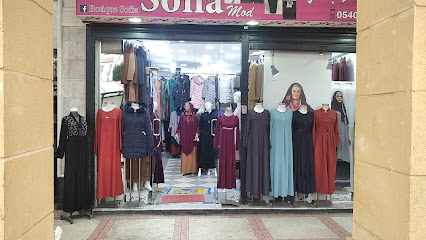
AS bijoux | vente en gros
Explore AS bijoux in the Casbah, Algiers, for exquisite jewelry that embodies the rich culture and artistry of Algeria.

Boutique Man city
Boutique Man City: Your destination for stylish sportswear in the heart of Casbah, Algiers.

Essential bars & hidden hideouts
Le Repère
Experience the essence of Algerian cuisine in the heart of the historic Casbah at Le Repère, a culinary delight for every traveler.
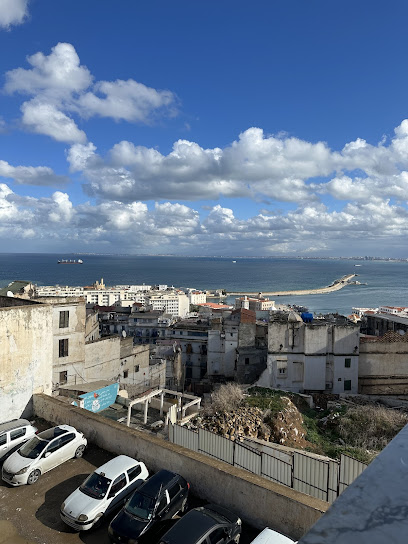
Club gentleman
Discover the vibrant nightlife at Club Gentleman, a premier bar and grill in Bordj El Kiffan, where great food meets a lively atmosphere.
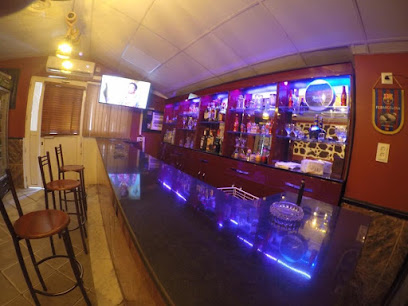
Dar Yemma Casbah
Experience the rich flavors of Algeria at Dar Yemma Casbah, a charming restaurant in the heart of historic Algiers.
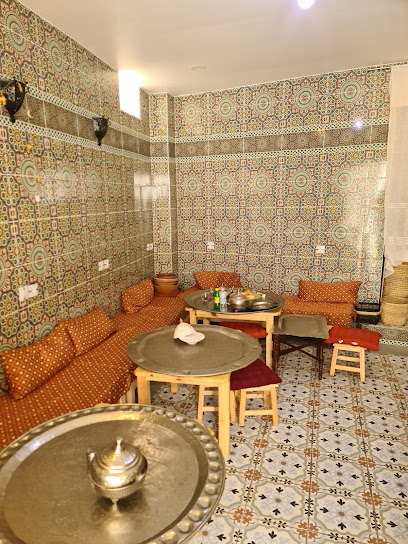
Restaurant Barberousse1947
Experience the authentic flavors of Algeria at Restaurant Barberousse1947, located in the historic Casbah of Algiers.
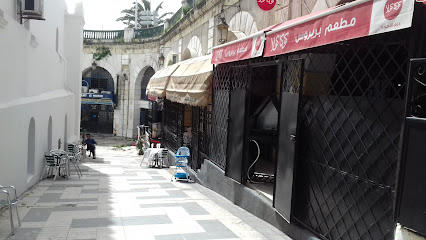
Dar el Chdjour
Savor the rich flavors of Algeria in the historic Casbah at Dar el Chdjour, a culinary gem offering authentic dishes and stunning views.
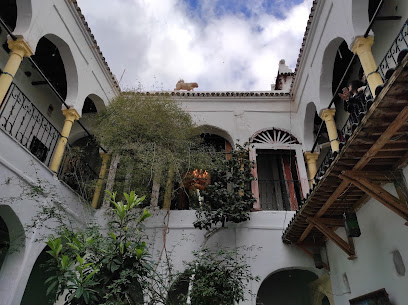
The simpsons
Discover authentic Algerian cuisine at The Simpsons Restaurant, where local flavors meet a charming atmosphere in the heart of Casbah.
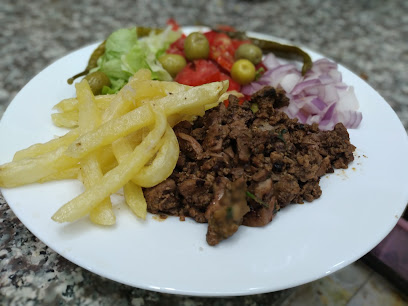
Restaurant El Nakhla
Experience the rich flavors of traditional Algerian cuisine at Restaurant El Nakhla in the historic Casbah of Algiers.
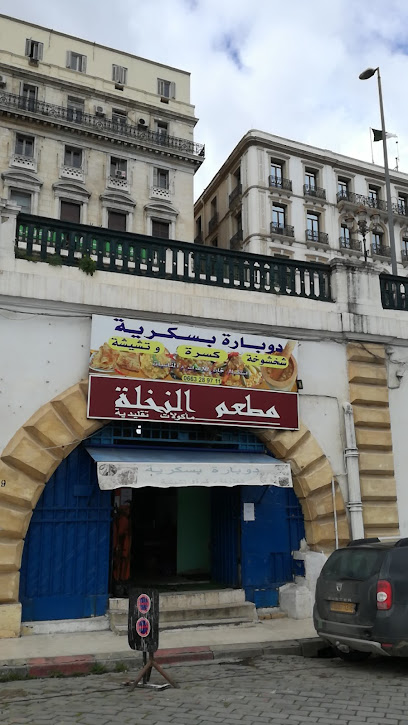
CASBAH ANIS
Discover the authentic tastes of Algeria at Casbah Anis, a culinary gem in Bab El Oued serving traditional delights.
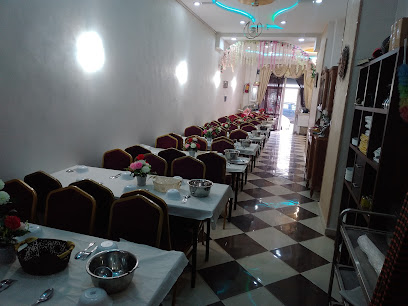
My house
Experience the heart of Algerian hospitality and cuisine at this family-friendly gem in the historic Casbah, Algiers.
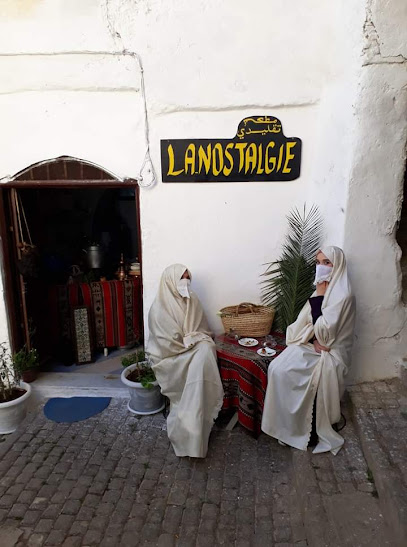
Les arcades de l’amirauté
Experience the authentic tastes of Algeria in the historic Casbah at Les Arcades de l’Amirauté, where tradition meets flavor.

Local Phrases
-
- Helloمرحبا
[marhaba] - Goodbyeوداعا
[wadaa'an] - Yesنعم
[naam] - Noلا
[la] - Please/You're welcomeمن فضلك
[min fadlik] - Thank youشكرا
[shukran] - Excuse me/Sorryعذرا
[aathara] - How are you?كيف حالك؟
[kayfa haluk?] - Fine. And you?بخير. وأنت؟
[bi khair. wa ant?] - Do you speak English?هل تتكلم الإنجليزية؟
[hal tatakallam al'injlizia?] - I don't understandلا أفهم
[la afham]
- Helloمرحبا
-
- I'd like to see the menu, pleaseأريد أن أرى القائمة، من فضلك
[uridu an ara alqaimah, min fadlik] - I don't eat meatأنا لا آكل اللحم
[ana la aakul allahm] - Cheers!في صحتك!
[fi sahtak] - I would like to pay, pleaseأود أن أدفع، من فضلك
[awadu an adfa', min fadlik]
- I'd like to see the menu, pleaseأريد أن أرى القائمة، من فضلك
-
- Help!النجدة!
[alnajdah!] - Go away!ارحل!
[irhal!] - Call the Police!اتصل بالشرطة!
[iatisal bialsurati!] - Call a doctor!اتصل بالطبيب!
[iatisal bialtabib!] - I'm lostلقد ضللت الطريق
[laqad dalalt altariq] - I'm illأنا مريض
[ana mareed]
- Help!النجدة!
-
- I'd like to buy...أريد أن أشتري...
[uridu an ashtari...] - I'm just lookingأنا فقط أتفرج
[ana faqat atafarraj] - How much is it?كم سعره؟
[kam sa'aruh?] - That's too expensiveهذا غالي جدا
[hatha ghali jiddan] - Can you lower the price?هل يمكنك خفض السعر؟
[hal yumkinuka khafd alsu'ar?]
- I'd like to buy...أريد أن أشتري...
-
- What time is it?كم الساعة؟
[kam alsaa'ah?] - It's one o'clockالواحدة
[alwahidah] - Half past (10)العاشر والنصف
[al'ashir walnisf] - Morningالصباح
[assabah] - Afternoonالظهر
[adhuhur] - Eveningالمساء
[almasa'] - Yesterdayأمس
[ams] - Todayاليوم
[alyawm] - Tomorrowغدا
[ghadan] - 1واحد
[wahid] - 2اثنان
[ithnan] - 3ثلاثة
[thalathah] - 4أربعة
[arba'ah] - 5خمسة
[khamsah] - 6ستة
[sittah] - 7سبعة
[sab'ah] - 8ثمانية
[thamania] - 9تسعة
[tis'ah] - 10عشرة
[asharah]
- What time is it?كم الساعة؟
-
- Where's a/the...?أين...؟
[ayn...?] - What's the address?ما هو العنوان؟
[ma huwa al'anaan?] - Can you show me (on the map)?هل يمكنك أن تريني (على الخريطة)؟
[hal yumkinuka an tureeniy (ala alkhareetah)?] - When's the next (bus)?متى القادم (الحافلة)؟
[mata alqadim (alhafilah)?] - A ticket (to ....)تذكرة (إلى ...)
[tadhkirah (ila ...)]
- Where's a/the...?أين...؟
History of Casbah
-
The Casbah, or Kasbah, has its origins in the 10th century when it was established by the Almoravids as a fortified citadel. The neighborhood flourished under the rule of the Ottoman Empire in the 16th century when it became the center of political power in Algeria. The architecture from this period reflects a unique blend of Moorish and Ottoman styles, characterized by narrow winding streets, whitewashed buildings, and intricate tile work.
-
The Casbah played a pivotal role during the resistance against French colonial rule in the 19th century. Notably, in 1830, the French invasion of Algiers began with the capture of the Casbah, marking the start of a brutal colonial period that lasted for over a century. The neighborhood became a hotbed of resistance, with many uprisings and revolts originating from its labyrinthine alleys.
-
During the Algerian War of Independence (1954-1962), the Casbah served as a crucial stronghold for the National Liberation Front (FLN). The neighborhood was a focal point of urban guerrilla warfare against the French military. The French responded with violent repressions, including the infamous Battle of Algiers in 1957, which led to significant destruction and loss of life within the Casbah.
-
After gaining independence in 1962, the Casbah faced numerous challenges, including urban decay and economic decline. However, efforts have been made to restore and preserve its historical and cultural heritage. In 1992, the Casbah was designated a UNESCO World Heritage Site, recognizing its architectural significance and the need for preservation amidst ongoing urban development.
-
Today, the Casbah is a living museum of Algerian history and culture, attracting both tourists and locals. Its vibrant markets, traditional crafts, and historical monuments, such as the Ketchaoua Mosque and the Palace of the Dey, are testimony to its rich past. The neighborhood remains a symbol of Algerian identity and resilience, celebrating its diverse cultural influences while facing the challenges of modernization.
Casbah Essentials
-
The Casbah is located in the heart of Algiers, easily accessible by various means of transport. From Algiers International Airport, you can take a taxi or book a ride through ride-hailing apps. If you are coming from other neighborhoods like El Madania or Belouizdad, the Casbah is a short taxi ride away. Public buses and trams also connect to the city center, from where you can walk to the Casbah.
-
The Casbah itself is best explored on foot due to its narrow, winding streets. Public transport options like buses are available nearby, but they may not directly enter the Casbah. Taxis are a convenient way to reach the Casbah from other areas. Bicycles can be rented from various local shops, but be cautious as the terrain can be steep and challenging.
-
The Casbah is generally safe for tourists during the day, but it is advisable to remain vigilant, especially at night. While the area has a rich cultural heritage, some spots can have higher crime rates, particularly around secluded alleys and less populated areas. Always keep your belongings secure and avoid flashing valuables or large amounts of cash.
-
In case of an emergency, dial 17 for police assistance or 14 for medical emergencies. The nearest hospital is located in the city center. It is advisable to have travel insurance that covers medical emergencies. If you lose your passport or encounter theft, contact your embassy or consulate in Algiers as soon as possible.
-
Fashion: Do dress modestly, particularly in the presence of religious sites. Avoid wearing shorts or revealing clothing. Religion: Do respect local customs and traditions, especially during prayer times. Public Transport: Do give up your seat to elderly passengers and be courteous. Don’t eat or drink on public transport. Greetings: Do greet with a firm handshake and smile. Eating & Drinking: Do try local foods like couscous and pastries. Don’t refuse food or drink offered by locals, as it may be considered rude.
-
To experience the Casbah like a local, visit traditional markets and engage with local artisans. Try to learn a few phrases in Arabic or French; locals appreciate the effort. Explore the historical sites, such as the Ketchaoua Mosque and the Palace of the Raïs. Don't hesitate to ask locals for directions or recommendations; they are usually friendly and willing to help.
-
When visiting the Casbah, be mindful of cultural and religious sensitivities. Always ask for permission before taking photos of people, especially in religious settings. During Ramadan, be respectful of those fasting; avoid eating or drinking in public during daylight hours.
Nearby Cities to Casbah
-
Things To Do in Tizi Ouzou
-
Things To Do in Bejaia
-
Things To Do in Setif
-
Things To Do in Palma de Mallorca
-
Things To Do in Constantine
-
Things To Do in Oran
-
Things To Do in Alicante
-
Things To Do in Murcia
-
Things To Do in Annaba
-
Things To Do in Valencia
-
Things To Do in Tlemcen
-
Things To Do in Almeria
-
Things To Do in Oujda
-
Things To Do in Tarragona
-
Things To Do in Barcelona











